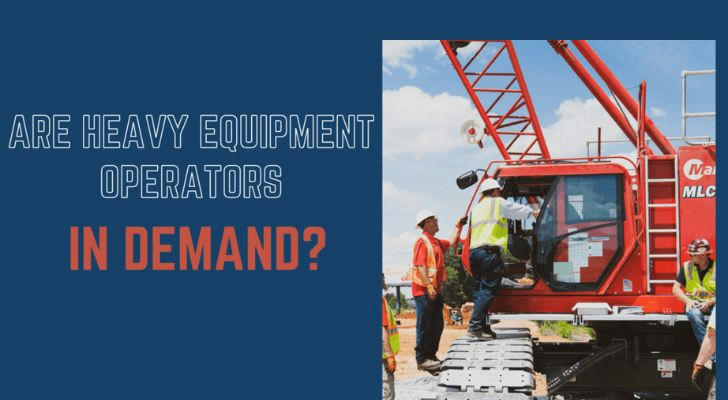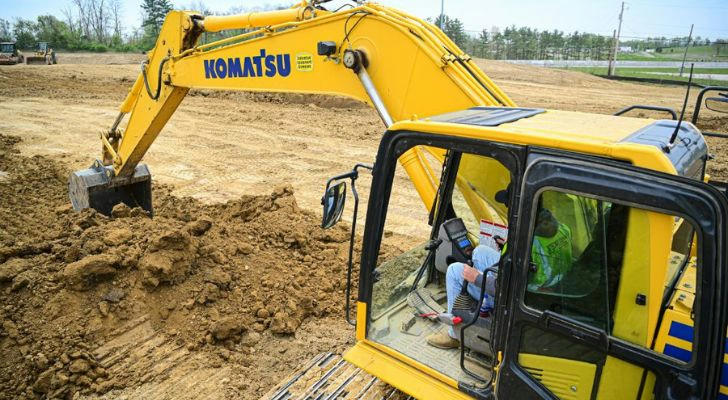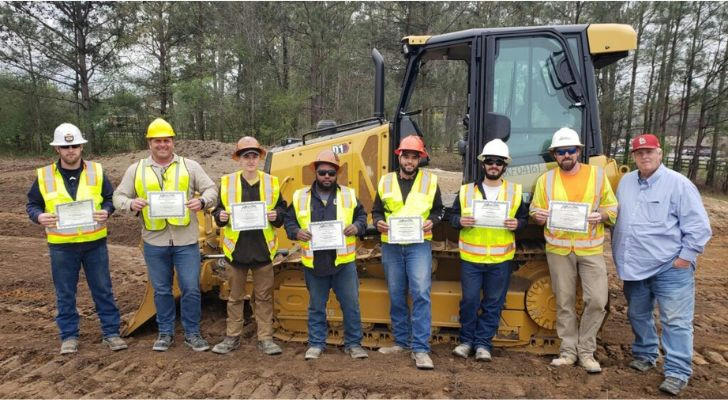The Career Outlook for Heavy Equipment Operators
Heavy equipment operators play a crucial role in the construction, mining, and transportation industries across the United States. These professionals handle machinery such as bulldozers, excavators, cranes, and loaders, ensuring that major infrastructure and development projects are completed safely and efficiently. As the country continues to invest in public infrastructure and private construction, demand for skilled equipment operators remains consistent. This article explores the career landscape for heavy equipment operators, offering a realistic look at employment trends, salary expectations, training requirements, and long-term opportunities.

What Does a Heavy Equipment Operator Do?
Heavy equipment operators are responsible for operating a variety of large machinery used in construction and related sectors. Their tasks may include:
- Excavating foundations
- Grading and leveling land
- Transporting materials
- Demolishing structures
- Assisting with road construction and repair
Operators must understand how to handle their equipment safely, interpret blueprints and site layouts, and perform routine maintenance checks. A high level of coordination and mechanical aptitude is essential for this job.
Employment Outlook
According to data from the U.S. Bureau of Labor Statistics (BLS), employment for construction equipment operators is projected to grow 3% from 2022 to 2032, which is about as fast as the average for all occupations. This projected growth translates to roughly 50,800 new job openings each year, largely due to the need to replace workers who retire or transition to other careers.
Increased infrastructure spending, both on federal and state levels, is a key driver of demand. Initiatives related to road maintenance, bridge reconstruction, and utility installations will continue to require experienced machinery operators.
Industry Breakdown
Heavy equipment operators are employed in various sectors, including:
- Construction: The largest sector, accounting for more than 60% of all equipment operator positions.
- Mining: Includes surface mining operations requiring haul truck and loader operators.
- Utility Systems: Operators work with companies that install or repair pipelines, power lines, and sewers.
- Local Government: Public works departments employ operators for snow removal, road maintenance, and emergency response.
Each industry has specific requirements and working conditions. For example, mining operations may involve remote locations and rotating shifts, while public sector jobs often provide more predictable schedules.
Skills and Training
Most heavy equipment operator positions require a high school diploma or equivalent. Specialized training programs are widely available and usually take several months to complete. These programs cover topics such as:
- Equipment safety protocols
- Basic mechanics
- Reading technical drawings
- On-site communication practices

Some states require licensure or certification, especially for crane operators or those handling hazardous materials. Many employers also provide on-the-job training to supplement formal education.
Certifications such as those from the National Center for Construction Education and Research (NCCER) or the National Commission for the Certification of Crane Operators (NCCCO) can enhance job prospects.
Salary Expectations
According to the BLS, the median annual wage for construction equipment operators in May 2023 was approximately $55,810. However, salaries vary depending on experience, location, industry, and equipment specialization. For example:
- Top 10% Earners: Over $83,000 annually
- Bottom 10% Earners: Around $37,000 annually
- Union Jobs: Often come with higher wages and better benefits
States like California, New York, and Illinois tend to offer higher wages due to the cost of living and volume of ongoing construction projects.
Job Stability and Advancement
Heavy equipment operation is considered a stable career for individuals seeking long-term employment. The skills acquired are transferable across states and industries, offering flexibility in career planning. Additionally, experienced operators can move into supervisory roles or become safety trainers, inspectors, or project managers.
The ability to operate multiple types of machinery increases job security and makes candidates more attractive to employers. Continuing education and skill development are essential for staying competitive.
Physical Demands and Work Environment
Working as a heavy equipment operator requires physical stamina and attention to detail. Tasks often take place outdoors in various weather conditions. Operators must remain alert during long shifts and adhere to strict safety standards to prevent accidents.
Personal protective equipment (PPE), such as hard hats, steel-toed boots, and high-visibility clothing, is standard. Understanding ergonomic principles and proper lifting techniques can help reduce the risk of injury.
Geographic Trends
Job availability often aligns with regions experiencing population growth, urban development, and infrastructure expansion. The following states have seen consistent demand for heavy equipment operators:
- Texas: Ongoing residential and commercial construction
- Florida: Road and utility upgrades due to population influx
- California: Earthquake retrofitting and public works projects
- North Dakota: Mining and oil field operations
Relocation may be a viable option for individuals willing to pursue opportunities in high-demand areas.
Technology and Industry Changes
Automation and GPS technology are increasingly being integrated into heavy equipment. Operators now use software to enhance grading accuracy and track job progress. While these advancements improve efficiency, they also require operators to be comfortable with digital tools and basic computer systems.
Training programs are adapting to include modules on emerging technologies. Individuals who stay updated with industry innovations are better positioned for long-term career growth.

Conclusion
Heavy equipment operation is a practical career choice for individuals interested in hands-on work, mechanical systems, and construction environments. With steady demand, competitive wages, and clear paths for advancement, this field remains a solid option in the American job market.
While the work is physically demanding, it offers stability and variety, particularly for those who value working outdoors and contributing to large-scale projects. Understanding the training requirements, industry trends, and geographic considerations can help job seekers make informed decisions about entering this career path.
Staying informed about evolving technologies and maintaining a commitment to safety and professionalism can lead to long-term success as a heavy equipment operator.
